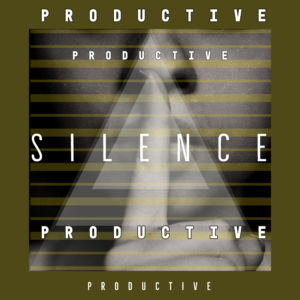In the world of communication, silence is often considered a weakness, a sign of disconnection or a lack of engagement. However, there is an unexplored beauty in the stillness of productive silence that we often overlook. Silence can be a powerful tool that facilitates deeper insights, understanding, and growth in group dynamics. This essay aims to explore the value of productive silence in group communication, why it is often overlooked, and how to create an environment that embraces its beauty.
Silence is more than just the absence of sound; it can be a space where thoughts can grow and develop. When we allow ourselves and others time to reflect, we create opportunities for deeper conversations, and we tap into the collective intelligence of the group. In other words, the beauty of silence lies in the power it holds to elevate the quality of group discussions.
Unfortunately, Western culture tends to view silence as a problem, an obstacle to overcome in communication. The constant need for speed and instant gratification has led us to value fast-paced conversations that prioritize efficiency over depth. This mindset can leave little room for introspection, and we often miss out on the transformative power of productive silence. In group dynamics, this can lead to individuals feeling the pressure to speak quickly and often, regardless of the substance of their contributions. This mindset can lead to conversations that lack depth and substance.
In order to harness the power of productive silence, we need to create an environment that values reflection and introspection. One way to achieve this is by creating ground rules for communication that emphasize active listening, respect, and open-mindedness. Encouraging group members to take pauses to reflect can also be helpful, especially when conversations become emotional or heated. Allowing individuals to gather their thoughts before contributing to the conversation can lead to deeper insights and more meaningful contributions.
Productive silence can also help to prevent conflicts and misunderstandings. When we take a pause to reflect, it can help us to calm down and gain clarity. This clarity can prevent us from saying things we may regret or making assumptions about others’ intentions. By creating a space for deeper understanding, we can build stronger connections within the group and reduce the likelihood of conflicts arising.
Furthermore, productive silence can lead to a more inclusive environment where everyone’s contributions are valued. In fast-paced conversations, those who don’t think quickly may feel left behind, leading to feelings of inadequacy or disconnection. By allowing time for reflection, we provide a space for individuals who may not think quickly but who have valuable insights to share.
Silence is not a sign of disconnection or lack of engagement but rather an opportunity for growth and deeper understanding. Productive silence allows for reflection and introspection, leading to deeper insights and more meaningful contributions in group dynamics. To harness its power, we need to create an environment that values reflection, active listening, and open-mindedness. By doing so, we can tap into the collective intelligence of the group and create conversations that are more transformative and enriching.

